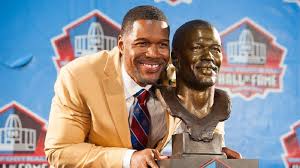
When you’re surrounded by people who share a passionate commitment and common purpose, anything is possible. – Howard Schultz
There is a story involving Yogi Berra, the well-known catcher for the New York Yankees, and Hank Aaron, who at that time was the chief power hitter for the Milwaukee Braves. The teams were playing in the World Series, and as usual Yogi was keeping up his ceaseless chatter, intended to pep up his teammates on the one hand, and distract the Milwaukee batters on the other. As Aaron came to the plate, Yogi tried to distract him by saying, “Henry, you’re holding the bat wrong. You’re supposed to hold it so you can read the trademark.” Aaron didn’t say anything, but when the next pitch came he hit it into the left-field bleachers. After rounding the bases and tagging up at home plate, Aaron looked at Yogi Berra and said, “I didn’t come up here to read.”
The story is a great reminder of why having and knowing your purpose is important. Do you know your company’s mission or vision statement? If not, sad to say, you are not alone. According to a survey conducted by TINYPulse (http://bit.ly/1puoP3z) of over 300 hundred companies and 40,000 anonymous responses, the survey revealed that only 42 percent of employees know their organization’s vision, mission, and values.
If your employees do not know your company’s vision, mission, or values then they will be poor representatives of your company. If you, as the leader, have not clearly communicated those core values then you have fallen down on the job. How can your employees represent what they do not know? Purpose-drive leadership is essential to your success. Here are three reasons why.
It gives context to your past
In order to understand where you are and where you are going it is important to understand your past. Knowing the back-story of your organization – all the successes and failures and how it emerged in the formative years is foundational information worth understanding.
Marcus Garvey said, “A people without the knowledge of their past history, origin and culture is like a tree without its roots.” Seek to understand where you have come from in order to make sense of where you are going. From that knowledge you can have a greater understanding and appreciation for where you are today.
It keeps you focused on the present
When your purpose and vision is clear it gives your employees the focus they need to succeed. If your team is in the dark about its mission and vision they are without the most basic of tools needed for success. Your employees cannot lead your organization to its intended destination if they do not understand why they are going there or the values that will guide them.
A clear understanding of your purpose gives them the ability to focus like a laser on accomplishing their goals and objectives. Just as Hank Aaron was able to tune out the distraction at home plate and hit a home run, so too, will your team succeed when they focus on their mission.
It gives you direction for the future
When you can put your past in context and focus on the present then you can build for the future. When you have a purpose that is known, with employees who are engaged, then you have a future that is promising.
“Even though the future seems far away,” said Mattie Stepanek, “it is actually beginning right now.” Purpose-driven leadership is about empowering and equipping your team. Purpose-driven leadership is the rudder of your ship and will keep you on course. Your future is only as promising as your ability to empower. The time is now to lay claim to your purpose, make known your mission and vision, and discover the possibilities before you.
What do you say?
© 2014 Doug Dickerson
Please follow and like us:









